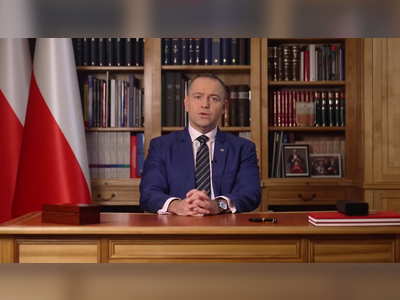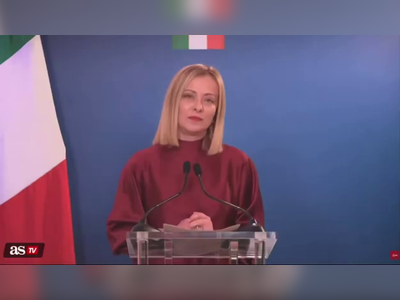EU Top Court Allows Netherlands to Halt Support for Non-Ukrainian Refugees
Controversial Ruling Distinguishes Between Ukrainian Nationals and Third-Country Nationals, Sparking Accusations of Discrimination
In a landmark decision, the European Union's Court of Justice has ruled that the Netherlands can cease providing shelter to third-country nationals who fled Ukraine, distinguishing their status from Ukrainian nationals.
These individuals were present in Ukraine on temporary permits for study or work when the conflict erupted.
Under the same protective measures afforded to Ukrainians in the Netherlands, they have enjoyed access to employment, education, and municipal care.
However, this decision aligns with an October recommendation from an EU Advocate General and underscores the distinction made by the Dutch government regarding refugee categories.
The court's ruling came after the Dutch Council of State sought clarification from the Luxembourg court amid legal challenges from nationals of Algeria, Turkey, Pakistan, and Nigeria, who resisted deportation.
Critics, including the humanitarian organization MiGreat, have expressed outrage at the ruling.
MiGreat's director, Roos Ykema, condemned the ruling as a tacit endorsement of nationality-based discrimination by European jurists.
"It's a stark reminder that fleeing from the same conflict doesn't guarantee equal treatment," she told the ANP news agency, framing the decision as emblematic of systemic racial biases within European migration policies.
This decision fuels an ongoing debate over immigration policy and highlights the delicate balance nations must navigate between sovereignty and adhering to international humanitarian standards.
As geopolitical tensions rise, the EU's approach to asylum and refugee protection faces intensified scrutiny, raising questions about the uniformity and fairness of European migration laws.
These individuals were present in Ukraine on temporary permits for study or work when the conflict erupted.
Under the same protective measures afforded to Ukrainians in the Netherlands, they have enjoyed access to employment, education, and municipal care.
However, this decision aligns with an October recommendation from an EU Advocate General and underscores the distinction made by the Dutch government regarding refugee categories.
The court's ruling came after the Dutch Council of State sought clarification from the Luxembourg court amid legal challenges from nationals of Algeria, Turkey, Pakistan, and Nigeria, who resisted deportation.
Critics, including the humanitarian organization MiGreat, have expressed outrage at the ruling.
MiGreat's director, Roos Ykema, condemned the ruling as a tacit endorsement of nationality-based discrimination by European jurists.
"It's a stark reminder that fleeing from the same conflict doesn't guarantee equal treatment," she told the ANP news agency, framing the decision as emblematic of systemic racial biases within European migration policies.
This decision fuels an ongoing debate over immigration policy and highlights the delicate balance nations must navigate between sovereignty and adhering to international humanitarian standards.
As geopolitical tensions rise, the EU's approach to asylum and refugee protection faces intensified scrutiny, raising questions about the uniformity and fairness of European migration laws.











